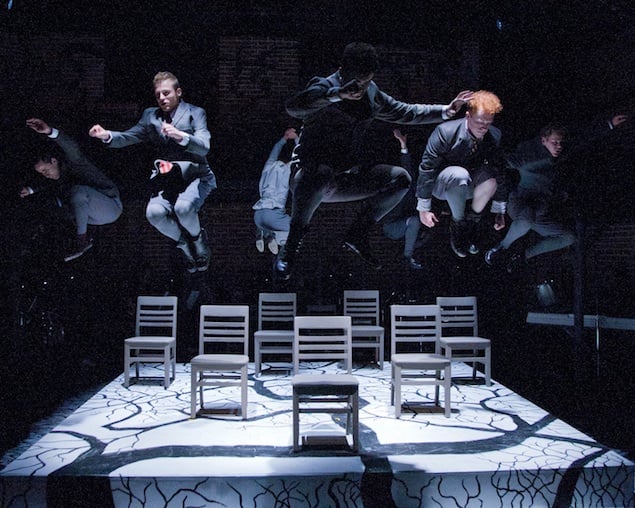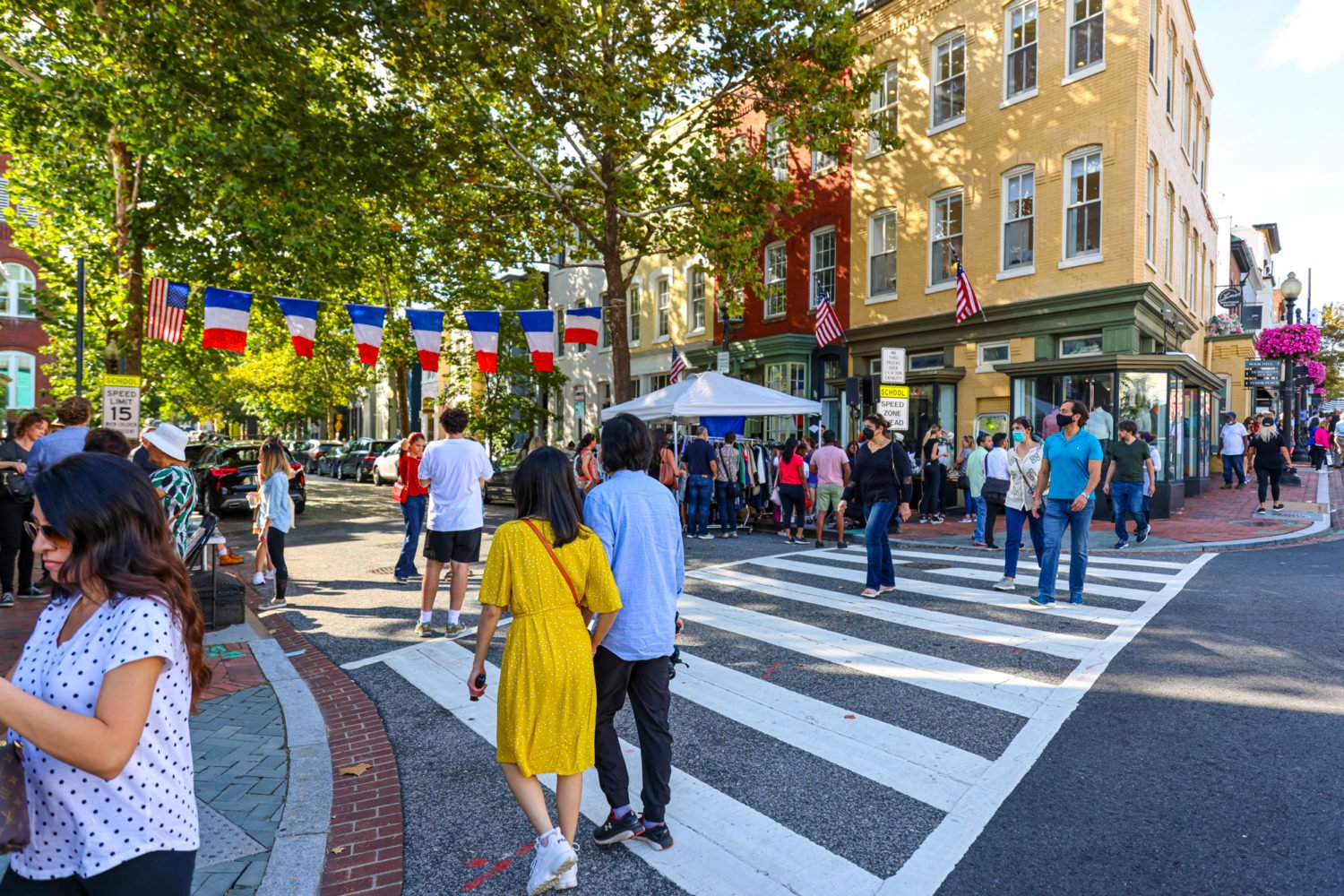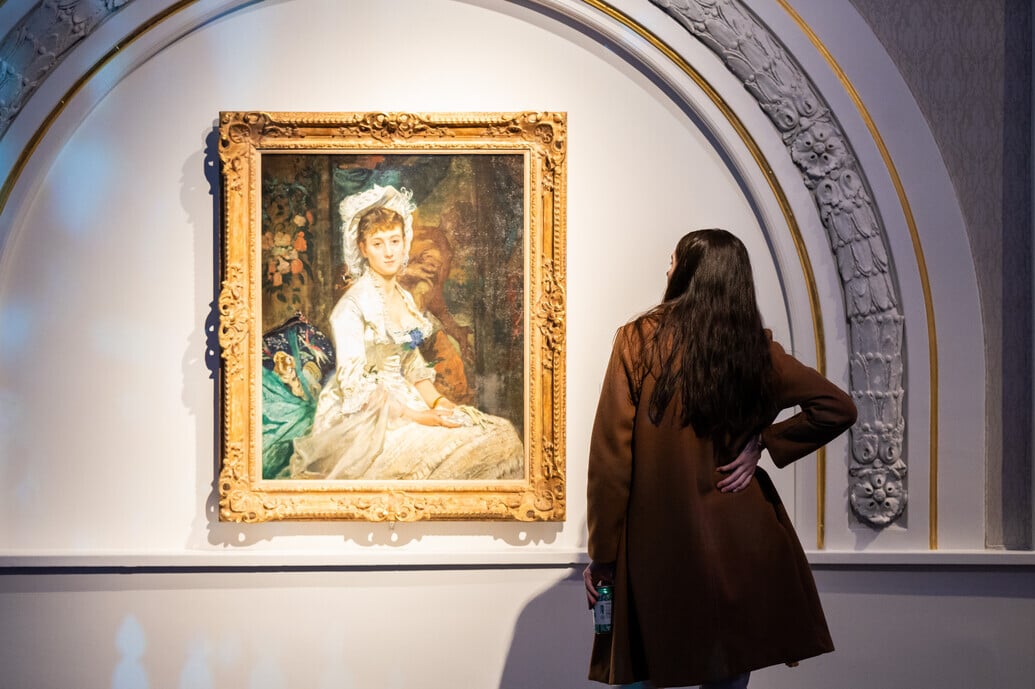
There’s something special about a show that reaches its satisfying climax as a bunch of teenagers jump around the stage, gamely
singing, “Blah blah blah blah blah blah blah blah blah blah blah blah blah.” Then again, nothing about
Spring Awakening,
Duncan Sheik’s masterful ode to teen angst, screams “conventional musical.” Composer Sheik and author/lyricist
Steven Sater won eight Tony awards back in
2007 for the show, a work that manages to perfectly capture the ecstatic
highs and the miserable
lows of confused, hormonal teenagers who are discovering their
sexuality and intellectual independence in spite of the repressed
and restrictive adults around them. Though the musical feels
thoroughly contemporary, it’s actually based on a then-scandalous
1892 German play of the same name by Frank Wedekind. Keegan
Theatre is the first DC company to stage its own take on the show
(the national tour stopped at the Kennedy Center back in 2009),
and the company has delivered a rousing rendition.
Spring Awakening revolves around a chorus of teenagers, with a particular focus on three individuals: Melchior, a defiant young intellectual
(Vincent Kempski); the naive but curious Wendla (Ali Hoxie); and the struggling student Moritz (Paul Scanlan). The parents’ attempts to stifle
not just their children’s sexual expression and creative thinking, but
any knowledge of
the realities of adulthood, have dire consequences. The
atmosphere of hope and rebellion that pervades act one descends into
tragedy when act two comes around.
Spring Awakening’s songs can be haunting and poetic, and some stand alone as thrilling anthems against authority. One of the strengths of
the Keegan production, from directors
Mark and Susan Marie Rhea, is the way its smaller ensemble players manage to shine even if they have just a snippet or two of solo vocal time. This
happens in such numbers as the playful and dreamy “My Junk,” as well as the stirring “Touch Me.”
Kurt Boehm’s choreography, which drives the
energy of ensemble numbers like “The Bitch of Living,” is reminiscent of
the Broadway production,
at times jumpy and jerky but often lyrical and balletic, as
well. Some group numbers suffer a little acoustically, though,
perhaps from the limitations of the small Church Street venue.
Kempski gives a rock-star performance as Melchior. His
charisma is on full display during “Totally Fucked” (the aforementioned
“blah blah blah” song), in which, amidst a chorus of his peers,
he realizes he’s backed himself into a corner. Kempski also
offers a tender, tearful rendition of “Left Behind,” a
eulogistic ode to a fallen friend (it’s a challenging song vocally
that Kempski manages to sing through his sobs).
The heart of
Spring Awakening lies with Moritz, and Scanlan brings a punk sensibility to such numbers as “And Then There Were None,” though he stumbled
over a few lyrics Tuesday evening.
Sarah Chapin and
Nora Palka are responsible for one of the play’s most chilling scenes, the moody duet “The Dark I Know Well,” during which each confesses
the same terrible secret.
From abortion to incest to suicide,
Spring Awakening doesn’t shy away from heavy, edgy
themes. The show closes with “The Song of Purple Summer,” a beautiful,
soaring ballad that
presents imagery of springtime and new beginnings (“The fences
sway. The porches swing. The clouds begin to thunder, crickets
wander, murmuring.”). In the show, the song feels like it comes
out of nowhere, tacked on after the story has wrapped up one
depressing turn after another. But it does offer an optimistic
sense that despite all that’s transpired, maybe, just maybe,
the kids are all right.
Spring Awakening
runs through July 8 at the Church Street Theatre. Running time is about two hours, with one intermission. Tickets ($35 to
$40) are available through Keegan’s website.














